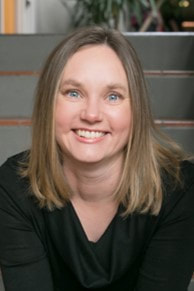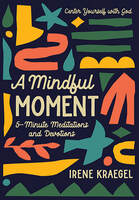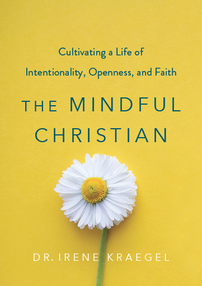 Mindfulness practice draws our mind back from anxious wandering to notice what is real in the moment, in the now. One of the things we might notice in the moment is anxiety about the future, and you might be wondering what to do with those anxious thoughts and feelings, particularly during this season of fear about COVID-19 around the globe. Anxiety feeds off vagueness. Our auto-pilot mode of thinking can push us through thinking loops that never quite land anywhere, stirring up emotional suffering without giving us an opportunity to notice what is true or to answer our own questions. So if you’re feeling anxious during this coronavirus pandemic, you might begin by sitting down with a pen and paper and answering this question: What are you afraid of? Name it Start by creating a written list of your fears. Take them to their natural conclusion, even if that raises anxiety in the moment. Chances are, the natural conclusion of most coronavirus fears will end with “I’ll die.” (Ex. “While I’m shopping at the grocery store, someone will pass the coronavirus to me and I’ll die.” or “Those people congregating at the park will pass around the coronavirus. It will travel to me when I talk with one of them and I’ll die.”). Or maybe there’s even a fear beyond death (ex. “I’ll die and no one will remember me, meaning I will have wasted my life.”). You may find other fears as well (ex. “I’ll lose my job and run out of money for food and feel hungry and sad.” or “I’ll have to stay inside by myself for a year until a vaccine is found by scientists and I’ll feel very lonely and depressed.”). Make sure you’ve taken the answers all the way to their end by asking yourself “so then what?” For example, if your answer is “I’m afraid of using the washing machine in the basement of my apartment building,” there’s a little more digging to do there before you get to the ultimate fear. Honor your survival instinct Remember to breathe as you’re answering this question about your specific fears. It’s okay to experience anxious feelings in this process – that’s the body’s survival mechanism kicking in, the fight-or-flight mechanism. God created this mechanism in the brain, and we can honor the emotions and physical reactions that help keep us safe. Humans can do lots of wonderful things, even while we’re feeling anxious, so we don’t need to judge our anxious feelings. It’s okay to have those feelings, no matter how strong they are. One of my favorite therapeutic expressions is learning to “pull up a chair for your anxiety.” As you do this exercise of identifying fears, pull up a chair for your feelings and continue making your list. Anxious feelings may stay for awhile and then wander off and then come back again, kind of like a pet or a small child. But whether or not there is anxiety, you can continue identifying your specific fears, which are simply thoughts and feelings passing through the mind. Engage in problem-solving Once you’ve written down a thorough list of your specific, fearful thoughts, take some time to problem-solve. Examples related to the coronavirus pandemic might include…
A slightly humorous example of this might be the toilet paper crisis of the last month. I noticed myself feeling anxious about this a couple weeks ago – what if we run out of toilet paper because there’s no more available at the stores? I got a little more specific about my fear, which came down to smelling bad and feeling physically uncomfortable. So I did some problem-solving. I researched alternatives to toilet paper, of which there are many. I remembered how toilet paper has not even existed for most of human history. I also reduced the amount of toilet paper I was using in order to conserve my supply, realizing I have been using way more than needed! All of this led me to let go of that particular anxiety. Turns out toilet paper is completely optional for us to lead meaningful lives. I can find ways to exist quite happily without it, if needed. A heavier example might be death. There have been times recently that I’ve noticed my chest tightening and my breath shortening when I think of the coronavirus – that fight-or-flight instinct kicking in. When I get specific about my fear, I realize it’s a fear of dying. So I notice that and smile at the fear, knowing it’s quite normal to fear death. Then I come back to a few helpful truths – truths I have drawn on since I first experienced an acute fear of dying during the month after 9/11, truths that have provided comfort and seen me through the loss of many people I’ve loved over the years. I identify my specific beliefs about death, heaven, and God’s provision. I recognize that my mortality is part of what unites me with every human in the history of the world. I also return to songs that ground me in eternal truths stretching far beyond this human existence, sometimes even sitting down at the piano to sing them through myself. Here are a few of my favorites:
Firm it up You’ve done some problem-solving, now be specific with yourself about how you will implement your plans. Identify your strategies for managing any actual dangers or threats, and take steps to minimize or reduce those threats. Identify thoughts, prayers, and songs that are helpful in connecting you with God’s comforting presence. Be intentional about next steps so you can rest in God’s provision. As you engage in this specific planning, notice where you are making useful plans for the future vs. where your mind spins into less useful ruminating. Also, pay light attention to what is happening with you in the moment - what is happening right now? Is there any provision, any comfort, any goodness? Don't miss out on what God is providing in the moment. It is your reminder that he will keep providing for you in all of your moments. God is bigger The reality is that God is bigger than the coronavirus. Humankind has been through numerous pandemics of this nature, along with wars, natural disasters, and other devastations. This is not the first time, and it will not be the last. But our God is stronger, and his plan is bigger. We see the short game (this lifetime), but he sees the long game (eternity). We know only our own strength (as individuals and communities), but he holds the power of the universe. We can trust in him, even when we feel afraid. Someday it will all be more clear. For now, we have what we need, one moment at a time. “For now we see in a mirror, dimly, but then we will see face to face.” 1 Cor. 13:12
0 Comments
Leave a Reply. |
Author
I am Irene Kraegel. I am licensed as a clinical psychologist and teach mindfulness on a faith-based university campus. I practice mindfulness because it opens me up to God (a.k.a. brings joy). I am writing here in hopes of sharing some of my experiences and thoughts related to the practice of mindfulness in the life of a Christian. Thanks for reading! Books
Blog archives
December 2023
|



